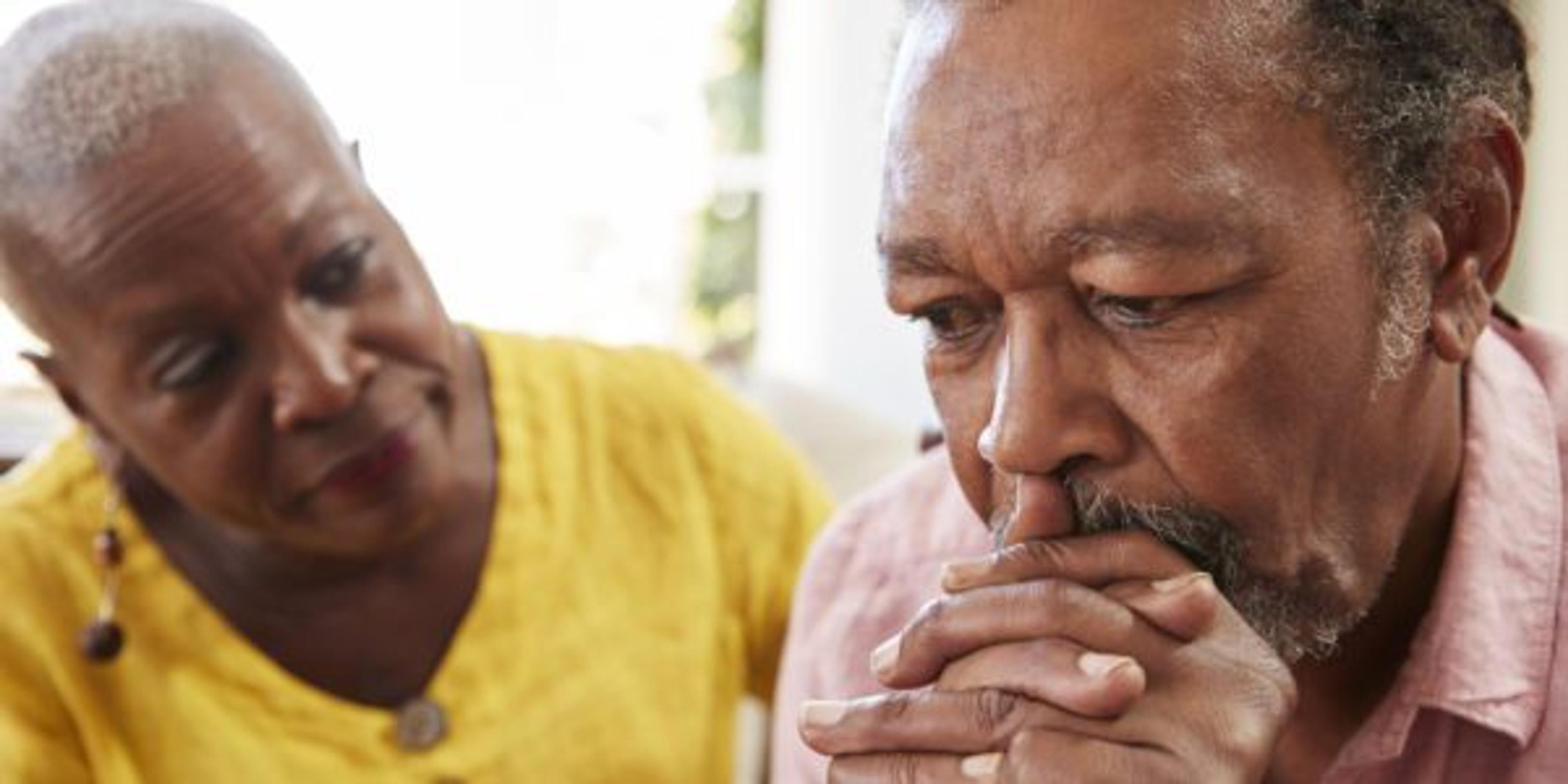Signs of Depression in People Over 50
A Healthier Michigan
| 3 min read

No one is expected to feel chipper and lighthearted all the time. But if you’re older than 50 and you’re assessing your own emotional health – or that of a loved one or close friend in middle age – how do you know if the behavior you are feeling or seeing is just being glum or if it could be a sign of something more serious?
Research has shown that emotional changes affect people more and in different ways as they age. There are some telltale signs that people older than 50 might be experiencing depression.
It’s incorrect to assume that wrestling with depression is a normal part of aging. It is not. Depression is a medical condition – sometimes arising out of changing physical and mental abilities. It’s not something to be ashamed of or hide from family or your primary care provider. It’s something to seek help for, like you would a sprained wrist or high blood pressure.
Causes of depression
The percentage of older adults diagnosed with depression in the United States is less than 5% of the population living independently, according to the U.S. Centers for Disease Control and Prevention. As people’s physical and mental abilities change, it can lead to frustration, anxiety and depression. Sometimes people who have seen their mobility decrease, who develop hearing issues or have other medical conditions can become depressed about a new set of limitations.
According to the CDC, those numbers may actually be higher, considering the fact some older adults are undertreated or misdiagnosed when it comes to depression. Having a chronic health condition like diabetes or a heart ailment can make people more susceptible to depression. In the U.S., 80% of older adults have at least one chronic condition, and 50% have two chronic conditions.
Signs of depression
What does depression look like in people over 50? It’s more than occasionally feeling blue or having a down day or two. It’s more than feeling sad about something specific. Depression is a serious medical condition that can contribute to higher risks of cardiac diseases and death after a heart attack, according to WebMD.
Depression can be diagnosed if these feelings of sadness last for weeks. Other symptoms might include:
- Lack of interest in hobbies
- Feeling pessimistic
- Feeling restless or irritable for long periods of time
- Either overeating or a lack of appetite
- Either sleeping too much or insomnia
- Fatigue
- Body aches
- Digestive troubles
- Difficulty making decisions or concentrating
Types of depression
Depression in people older than 50 can take many different forms, according to the National Institutes of Health. Some can be tied to other factors or present as a major obstacle in someone’s life. Some examples:
- Depressive Disorder tied to a medical condition.
- Depressive Disorder induced by alcohol/pain medication.
- Persistent Depressive Disorder, a depressed state that lasts more than two years but might not interfere with a person’s ability to do daily tasks.
- Major Depressive Disorder, in which symptoms last more than two weeks, presenting barriers to a person doing daily tasks.
Staying socially and physically active can help prevent depression and reduce symptoms.
If any of these symptoms or descriptions seem familiar, people should talk to their primary care provider as the first step toward getting treatment and feeling better.
If you feel an urge to harm yourself, seek immediate medical care.
Photo credit: Getty Images
Related:





